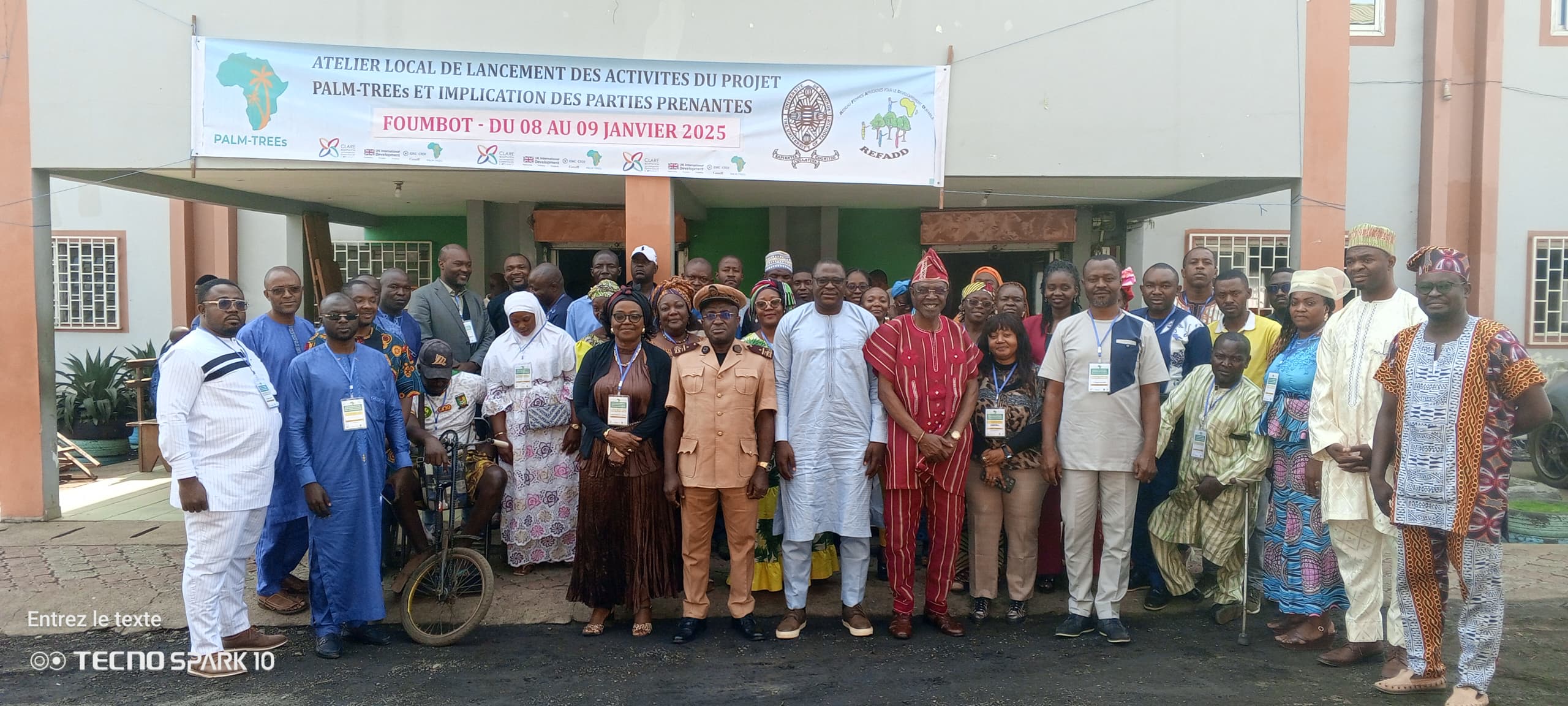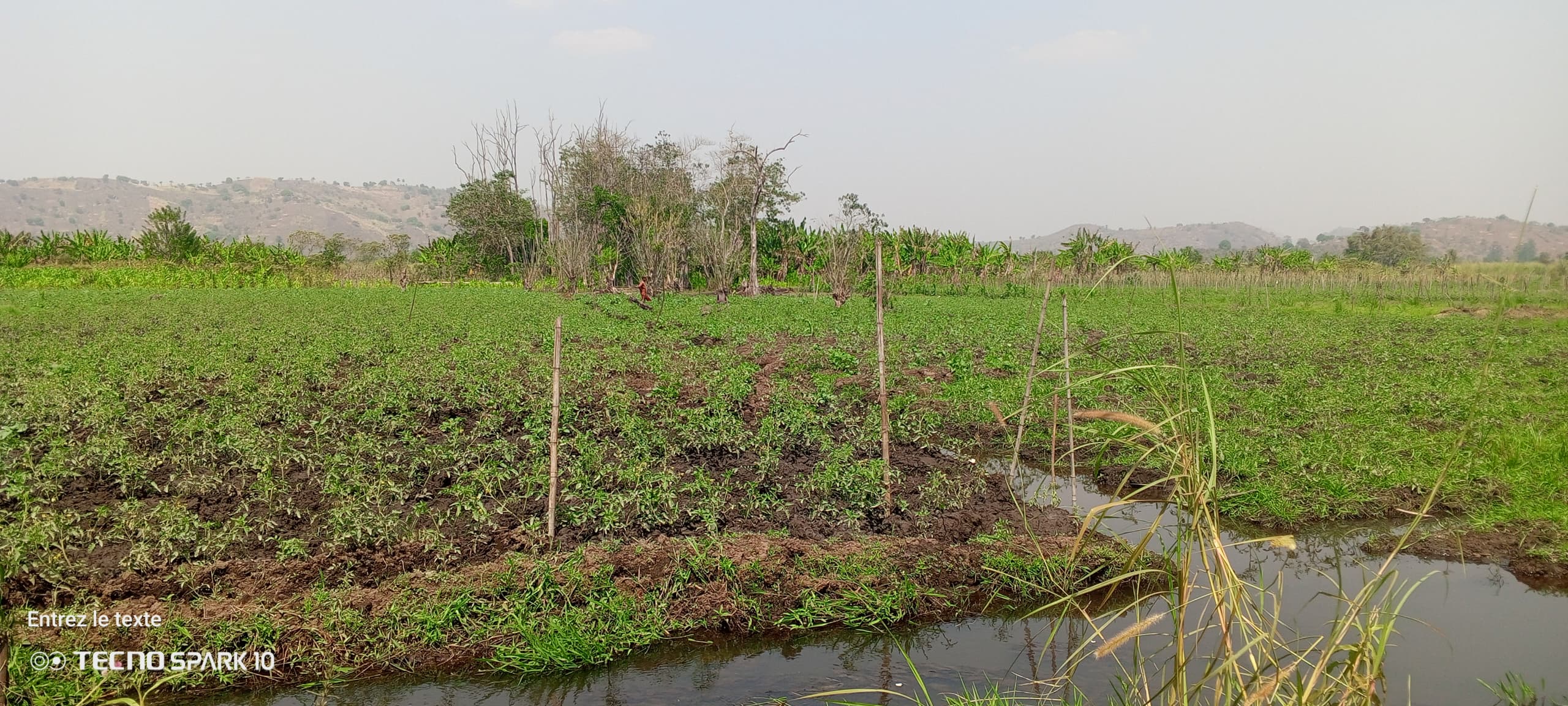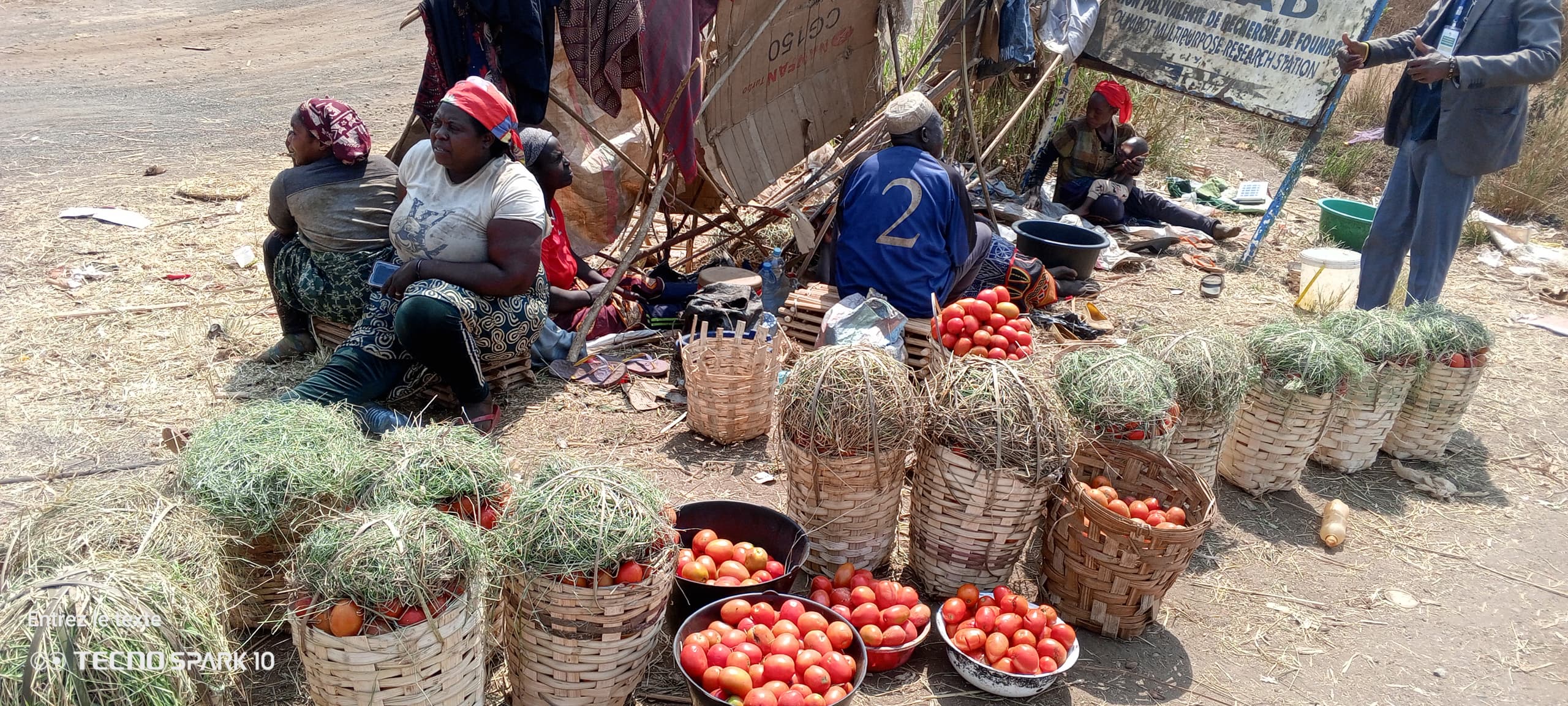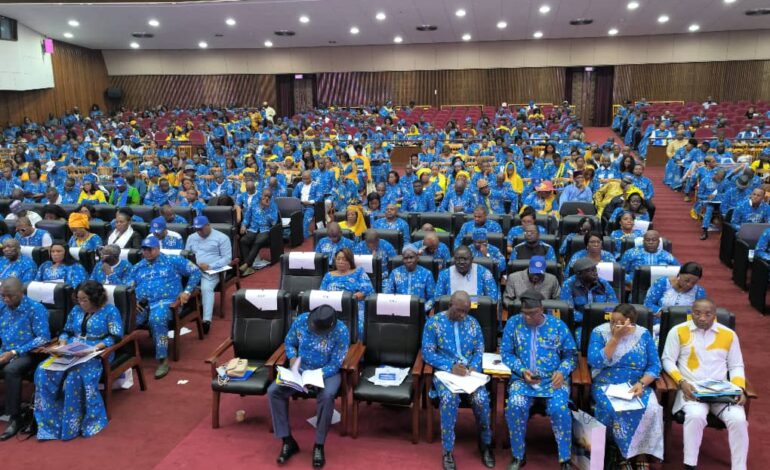A two-day workshop aimed at upskilling various stakeholders engaged in the PALM-TREEs project in the Noun Division of Cameroon was organized by REFADD.

African Women’s Network for Sustainable Development, known by its French acronym REFADD, has launched a series of training workshops in some targeted regions of Cameroon in partnership with the University of Yaounde.
After the workshop held in Guider, North region, another two-day training session was organized in Foumbot, Noun Division, from January 8th to 9th, 2025.
The main objective of these training workshops is to upgrade the skills of local producers, leaders of associations, and other stakeholders engaged in the PALM-TREEs project, on climate change challenges that could affect tomato production.
To officially launch the training and discussions at this workshop, the Representative of the Senior Divisional Officer of the Noun chaired the opening ceremony.
In his key address, he praised the initiative of REFADD notably the PALM-TREEs project which to him could address the numerous challenges faced by the population.
He said the project comes at a time when the Noun division is faced with some extreme climate threats such as flooding and drought that affect the development of that part of the country.
The Representative of the Senior Divisional officer of the Noun did not fail to mention the fact that tomato production is the main source of revenues in this area, and leads to job creation as well as economic growth, the reason why the PALM-TREEs project is highly appreciated.
On her part, the Regional Coordinator of REFADD, Monique Yigbedek also made an introductory note to welcome the different participants.
REFADD’s Regional Coordinator said tomatoes generate over 129 Billion CFA Francs for the Cameroonian economy.
She outlined the importance of this workshop and said it aims at identifying challenges related to tomato cultivation in Foumbot, involving all segments of the population.
“We will collaborate with researchers to develop techniques aimed at improving the cultivation, marketing, and transportation of tomatoes.” She said.
Professor Wilfried Pokam, Central Africa Coordinator of the project, highlighted the difficulties faced by producers, including threats from pests and challenges related to storage and transportation, which impact their income.

In his presentation, Pr. Pokam Wilfried underscored the need for participants to understand risk profiles by considering social and economic dimensions.
By sharing data on the impacts of climatic events, he pointed out the need to develop nature-based solutions to enhance tomato production in a participatory and co-creative manner.
He further underscored the significance of a transdisciplinary approach that combines academic and traditional knowledge to design sustainable solutions suited to local needs.
During the workshop, the various participants, researchers, and other stakeholders exchanged on issues of post-harvest challenges, with producers expressing themselves on difficulties they often encounter in the market. The fact that buyers often dictate prices during periods of oversupply.
According to these producers and participants at the training session, the focus is primarily on proposing approaches that will help: to better yield, improve storage of produced tomatoes, and better market access.
Also present at this training workshop, Ibrahim Nchoutnji, Head of the IRAD station in Foumbot said flooding has sparked a lot of havoc.

As a key recommendation, he proposed there should be regular maintenance of drains to facilitate rainwater drainage.
The Delegate for Agriculture and Rural Development in the Foumbot district who actively took part at the workshop pledged to support producers in seeking solutions to enhance the quality of their produce.
The workshop in Foumbot just like the previous one held in Guider will positively contribute to sustainable tomato production in Cameroon and improve the resilience of producers and communities in the face of climatic uncertainties.
The PALM-TREEs project is an innovative approach program that has been put in place to address the needs of vulnerable communities affected by extreme events in Sub-Saharan Africa, particularly in Cameroon.
The project integrates local knowledge and promotes inclusive and transdisciplinary approaches to strengthen the resilience of the most vulnerable members of the community against the impacts of extreme climatic events.




